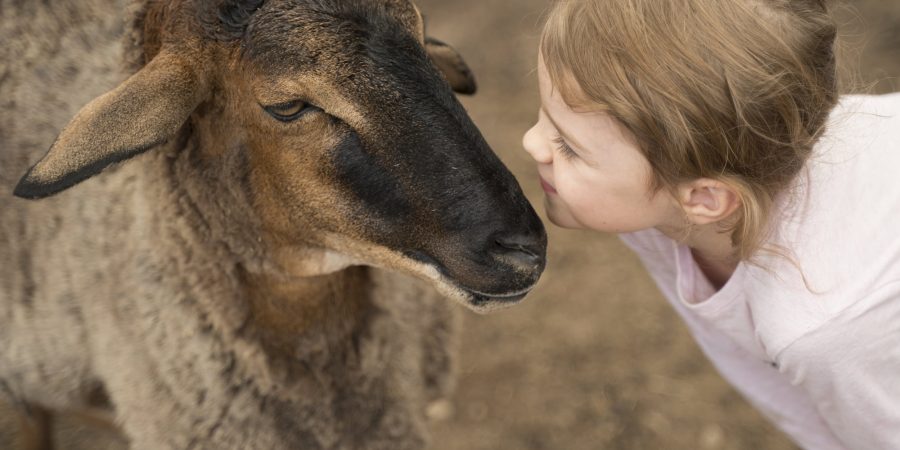While we may not realise it, decisions we make everyday impact the world around us in some way. By learning about our impact, and making kinder choices this World Environment Day (June 5th) and beyond, we can better protect our planet and all the animals we share her with.
1. Grazing cattle for beef is the key driver of global tropical deforestation.
Clearing swathes of forest to farm more cattle, and to grow more feed for farmed animals, is contributing to the climate crisis and mass species loss.
As habitats are destroyed and food sources are diminished, native animals are being ‘pushed out’ of their homes and their numbers are plummeting.
On top of having catastrophic impacts on wildlife, a major report by the UN’s Intergovernmental Panel on Climate Change pointed out the high consumption of meat and dairy as a key contributor to global warming – as forests are destroyed and the animals raised release gases.
Comprehensive research suggests that by shifting to plant-based food, we could reduce global land use for agriculture by 75% while comfortably feeding the existing human population. An enormous amount of land could be left to rest and regenerate for wild animals, and at the very same time, human-caused global warming could be slowed. To find out the carbon footprint of your food, and the most climate-friendly foods to fill your plate with, check out the climate change food calculator.
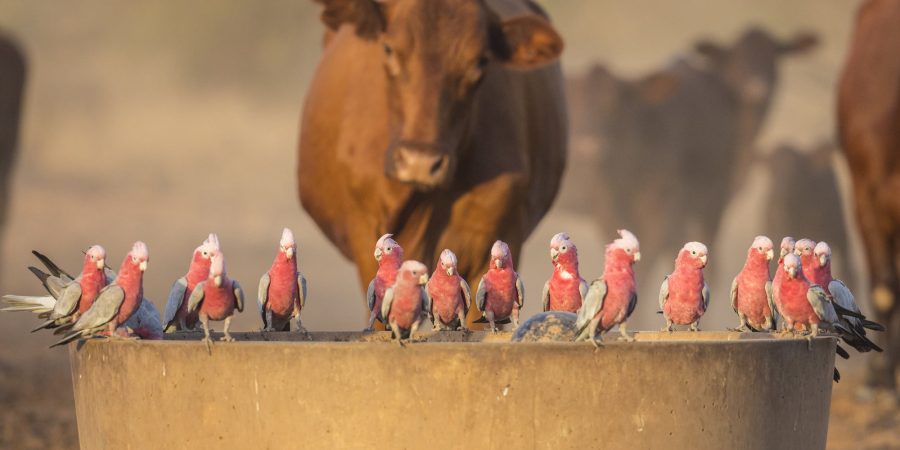
2. It takes 628 litres of water to produce just one litre of dairy milk in Australia.
For comparison, each litre of almond milk (which is the most water-intensive of the plant-based ‘milk’ options), uses 371 litres of water – meaning almond milk production uses 40% less water than dairy milk uses.
Some dairy farms are shifting towards factory farming cows as a ‘solution’ to use less water and other resources – this devastating approach is overlooking the fact that cows are sentient and social beings. Cows, like all animals forced to endure life in a factory farm, are sadly denied all the things that make life worth living.
Regardless of the type of farm a cow used for dairy is bred and raised on, she will be separated from her calves, and sent to slaughter once her exhausted body slows in producing milk. Male calves born to dairy cows are largely considered ‘waste products’ of the dairy industry, with the majority sent to slaughter within their first days of life.
In a country where water is a precious resource, reaching for more water-friendly options like oat and soy ‘milk’ can reduce our water footprint. It can also spare cows and calves from dairy’s cycle of suffering. For food that is kinder to animals – from milk and butter, to chocolate and yoghurt – head to our shopping list here.
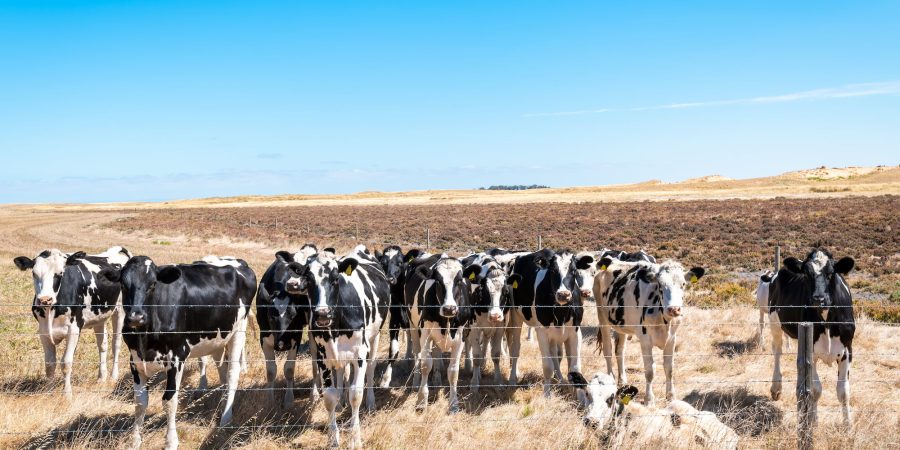
3. The majority of large plastic pollution in the ocean is reportedly from the fishing industry.
Gear discarded by the fishing industry – known as ‘ghost gear’ – makes up most large plastic littering the aquatic environment, according to reports. One study estimated the figure to be as high as 70% (by weight) of macroplastics floating on the sea’s surface to be related to fishing. Other sea pollutants include plastic from land, such as bags, wrappers, cutlery and bottles.
Whether this pollution remains intact as large pieces, or breaks down into microplastics, it poses a deadly threat to all marine life. As well as the fish who suffer immensely when being caught and killed by the fishing industry, ‘non target’ animals like seals and turtles are at risk of prolonged suffering and death from entanglement in lines and netting, or the ingestion of smaller plastic pieces.
If the demand for ‘seafood’ increases across the globe, it is also likely that there will be an increase in abandoned fishing gear too. With reports predicting we could have more plastic in the ocean than fish (by weight) in less than 30 years, continuing to reduce and recycle plastic waste is critical, as is opting for ocean-friendly food.
Thankfully there is an abundance of tasty and nutritious ‘seafood’ alternatives to explore – from ‘fish and chips’ to ‘crab cakes’ – that are inspired by the sea, while also being kinder to it.
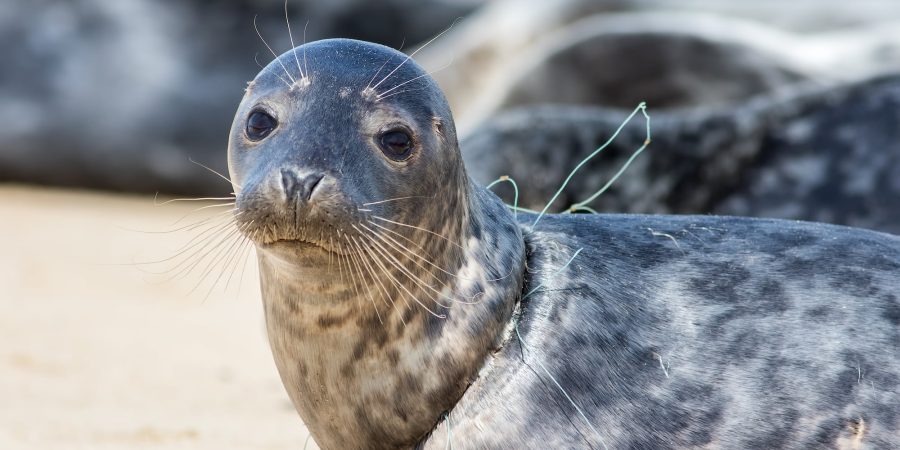
4. Farmed animals outweigh wild mammals and birds ten-fold.
When people think about Australia, it is the country’s extraordinary wildlife that is likely to come to mind. The same is true for most places around the world – with different geographical locations conjuring up vivid images of the unique native animals that live there, from African Elephants to Giant Pandas. Because these animals are granted wonderful exposure on television and in print, it comes as a shock to many to learn that globally there are significantly more animals who have been bred to be killed for food then there are wild mammals and birds.
Wildlife loss is occurring at an alarming rate – largely driven by habitat destruction to farm more animals for meat and dairy. In 2022, the Australian Government made the devastating announcement that koalas are considered endangered in NSW, QLD, and the ACT. According to The Australian Koala Foundation, the estimated number of koalas is now less than 100,000 – a frighteningly low number, particularly when compared to the 24.7 million cattle Meat and Livestock Australia reported in 2019.
An ever-increasing number of Aussies are already taking charge for wildlife by filling their plates with more plants –reducing the pressure on the farming systems which are negatively impacting animals and the planet. There are also several other simple things you can do to help wildlife starting today, from sharing your fruit trees to leaving out fresh, safe drinking water.
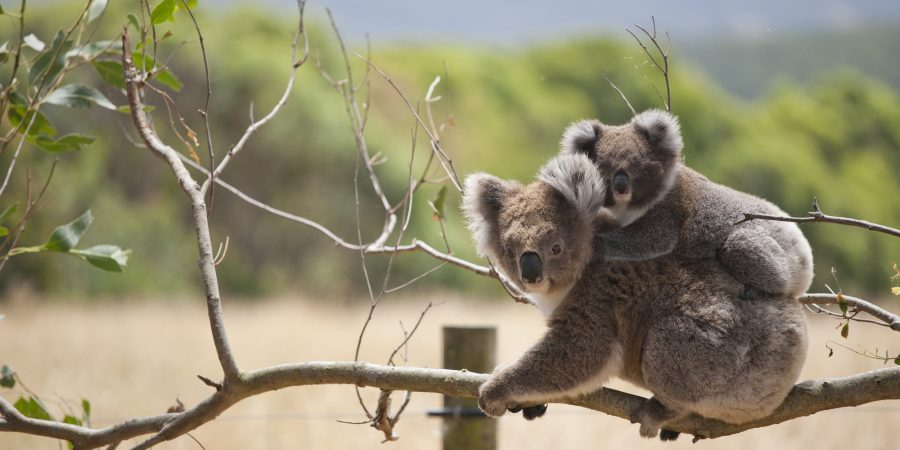
5. Sharks have been on this planet for 450 million years – that is longer than trees have been here.
The earliest evidence of sharks dates back hundreds of millions of years – an amount of time that is even more impressive when compared to that of modern humans (we have been around for less than 300,000 years!).
Sharks are apex predators, and their role at the top of the food chain is critical in keeping marine ecosystems healthy. Sadly, in the last 50 years alone, the populations of sharks and rays have plummeted by more than 70% – largely due to the fishing industry.
They are targeted for their meat (which is often marketed as ‘flake’) as well as their fins and oil for consumers across the globe. On top of this, sharks also fall victim to supertrawlers as ‘by-catch’, as do most sea animals who unfortunately cross paths with their giant, indiscriminate nets.
To drive these misunderstood animals to extinction is to head down a dangerous path for the oceans as we know them. To explore tasty, nutritious food that is kinder to sharks and all marine life, order your free Veg Starter Kit today.
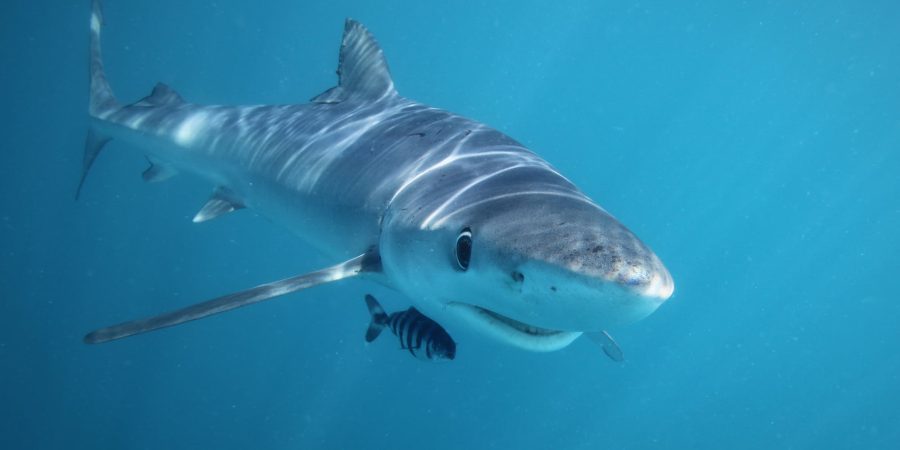
Protecting planet Earth
Thankfully, as consumer demand has led to many of the issues we face today, it is us, as consumers, who can address them.
We each have the power to shape the future we wish to see. A future that is brighter and healthier for our planet – where wild animals thrive and farmed animals are extended the compassion they too deserve.
If you would like to learn more about how you can bring this shared vision to life, ‘join the evolution’ and order your free guide to a kinder world today.
